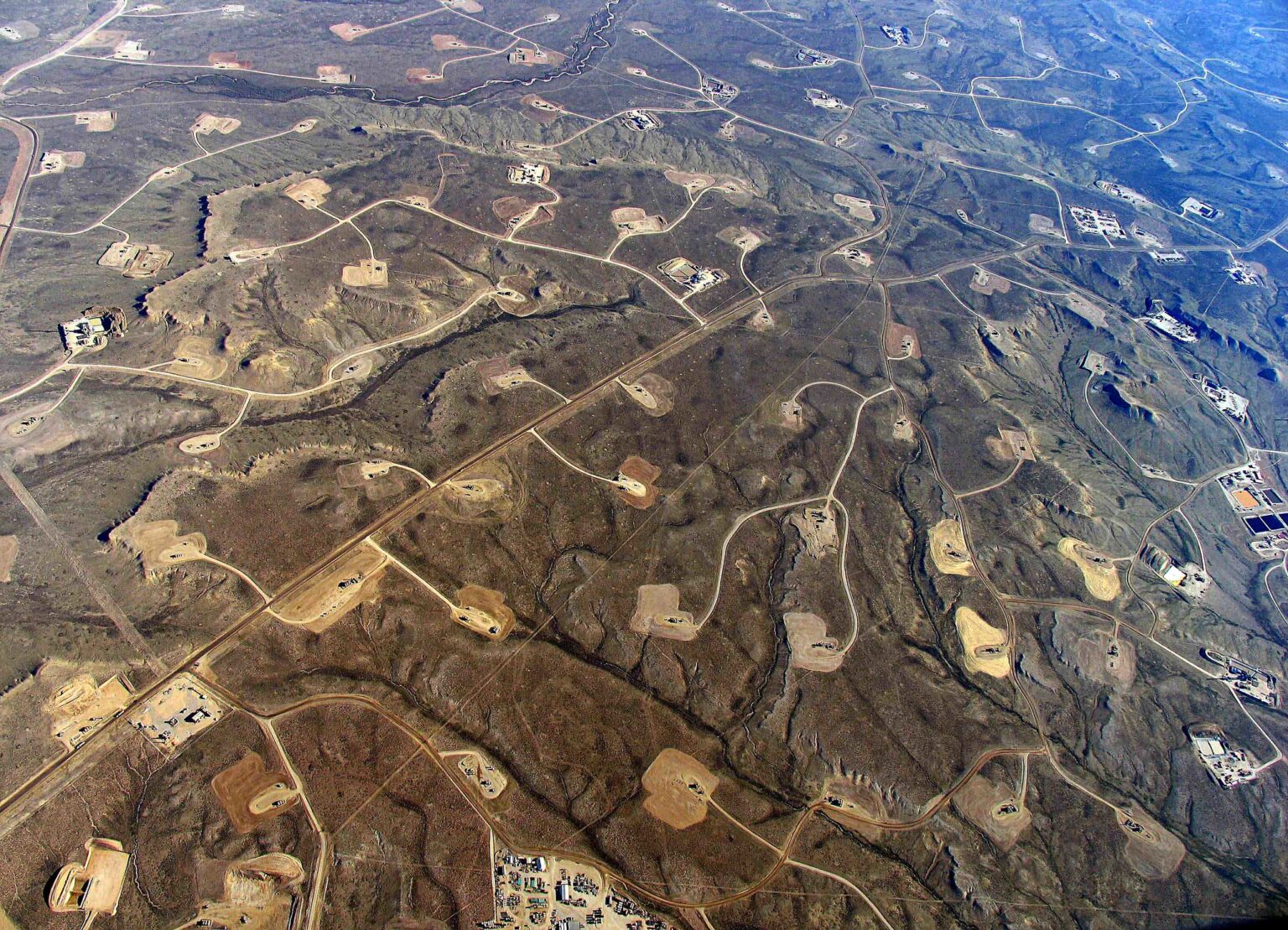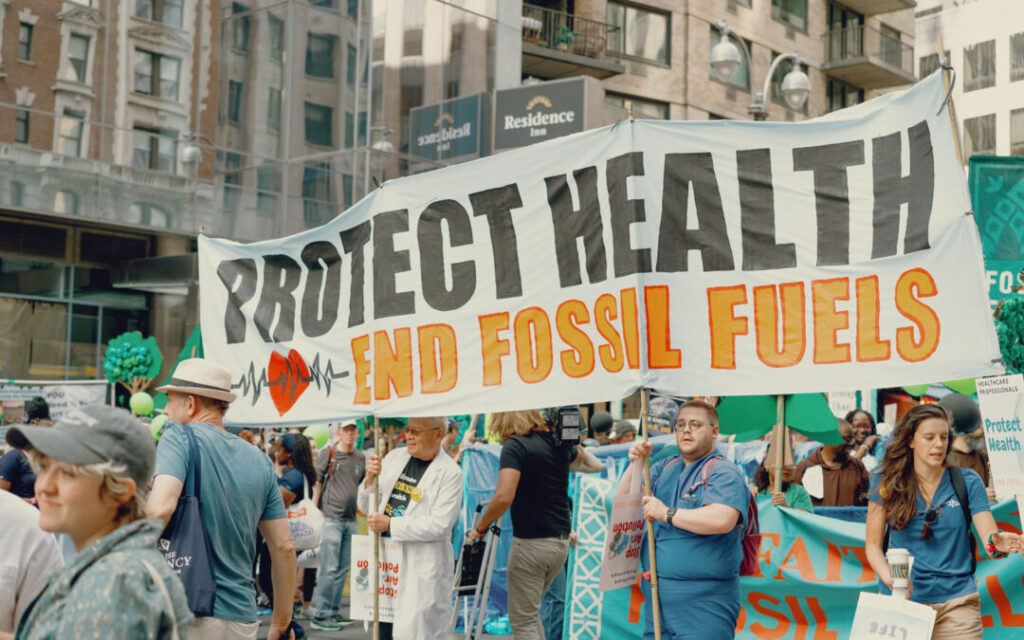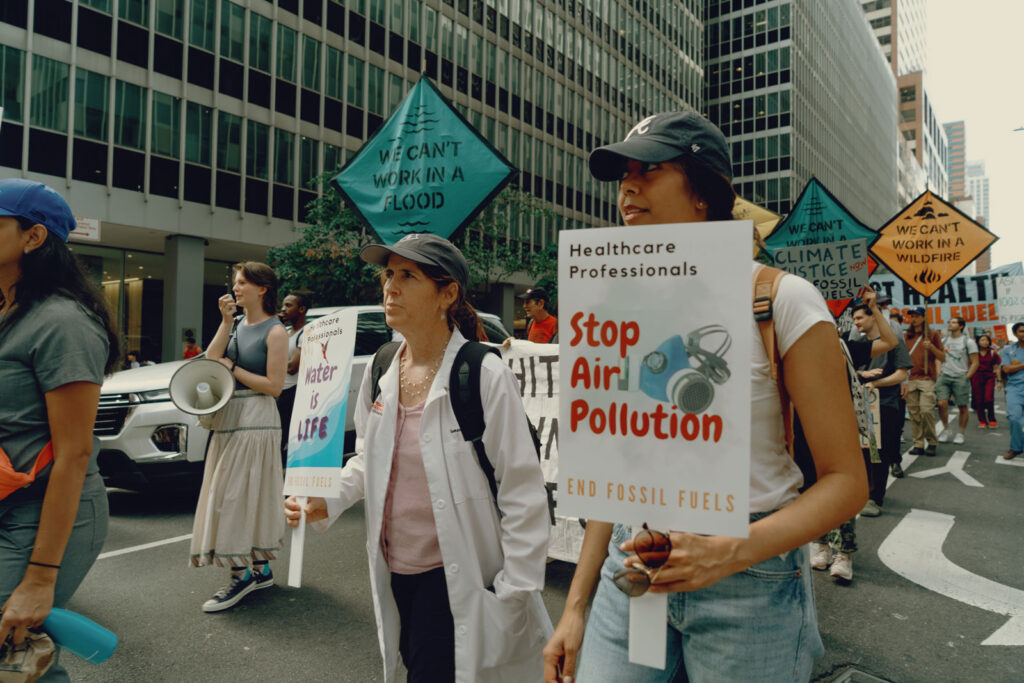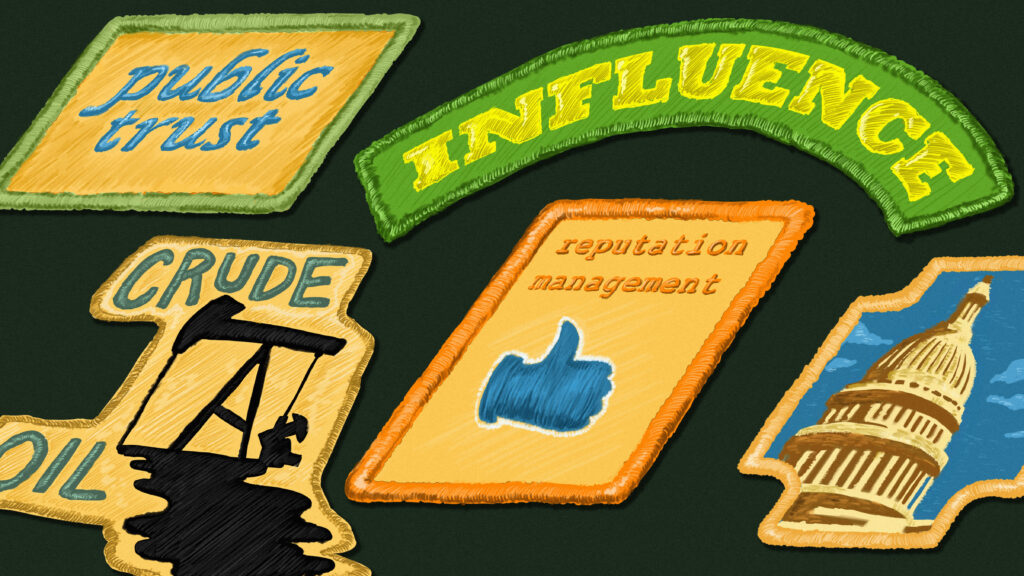The world’s largest advertising and public relations firms continue to get the majority of their work from major polluters, a new report has found.
Known as the “Big Six,” WPP, Omnicom, Interpublic Group (IPG), Publicis, Dentsu, and Havas — operating as holding companies — dominate the ad and PR industry through their hundreds of subsidiary agencies.
All six have made public commitments to reduce their carbon emissions, and regularly publicise their involvement in sustainability-focused PR and advertising campaigns.
While these agencies largely put on climate-friendly faces, however, the majority of their clients are not aligned with keeping global temperature rise to 1.5 degrees Centigrade (3.6 degrees Fahrenheit) by 2100 — the target nations have established under the Paris Agreement on climate change — according to the report, released on Friday by the climate think tank InfluenceMap.
Subscribe to our newsletter
Stay up to date with DeSmog news and alerts
“The PR and Advertising sector is not as green as it would like to portray,” said Faye Holder, the report’s author, in a statement. “Giants of the industry continue to work with clients that are obstructing the goals of the Paris Agreement, amplifying their voices and helping to grow their businesses, even as they continue to contribute to worldwide system collapse.”
To do the analysis, Holder used available client data for each company to categorize their clients’ engagement with the Paris Agreement target on a scale of “obstructive” or red, to “partially aligned” or yellow, to “supportive” or green.
She found that of 58 connections between the agencies and clients in the energy sector, 26 of those clients are obstructive, including major oil and gas companies like Saudi Aramco and Chevron. Of 38 automotive industry clients, none support policies that align with Paris goals.
Holder’s analysis found that just 8 percent of U.S.-based Omnicom’s clients are aligned with the Paris Agreement — the least of all six agencies. At the high end, Dentsu and Havas each have 16 percent of clients publicly in agreement with Paris targets, such as Apple, the French energy company EDF, and consumer goods giant Unilever.
The report also uncovers some potential conflicts of interest, such as work by WPP agencies for both the Clean Energy Council, a renewable energy advocate, and two Australian oil and gas companies, Woodside and Senex, that have consistently lobbied to weaken renewable energy policies.
WPP also has relationships with French oil giant TotalEnergies and the American Petroleum Institute, which is the chief lobby group for the fossil fuel industry in the United States.
In September, a DeSmog investigation found that a WPP agency in Uganda had enlisted social media influencers to drown out the voices of local protestors against a controversial oil pipeline backed by TotalEnergies. Many of the protestors faced beatings and arrests by police.
At least two of the “Big Six” — Dentsu and WPP — have publicly acknowledged the risks of working with polluters such as oil and gas companies in investor reports. However, none of the companies in the study have implemented “effective policies to address these relationships”, according to Holder’s analysis.
“It is critically important that agencies understand how exposure to obstructive clients calls into question the authenticity of their own climate commitments and how the work done for them ties into harmful lobbying agendas,” said Holder in the statement.
In September, the campaign group Clean Creatives mapped over 1,000 contracts between ad and PR agencies and the fossil fuel industry, with more than one in four being held by the Big Six.
Subscribe to our newsletter
Stay up to date with DeSmog news and alerts







